N-Acetyl L-Tyrosine (NALT) for Supporting Mental Clarity
Introduction
When your brain feels foggy, your focus scattered, and your motivation depleted, even simple decisions can feel like climbing a mountain. This mental sluggishness — often called brain fog — can come from many factors: stress, sleep loss, trauma, or nutrient depletion. But at its core, it’s often tied to a shortage of neurotransmitters, the brain’s chemical messengers.
One amino acid plays a starring role in making these messengers: L-tyrosine — and its more bioavailable form, N-acetyl L-tyrosine (NALT).
NALT is a modified version of L-tyrosine that helps the brain replenish dopamine, norepinephrine, and epinephrine, the neurotransmitters responsible for focus, motivation, and alertness. When your brain’s dopamine system is running low — as it often is during chronic stress or dissociation — clarity and drive suffer.
This article explores how N-acetyl L-tyrosine works, why it may help support mental clarity, and how to integrate it safely into a brain-supportive supplement stack 🌿.
Looking for supplements for This? Click here.
Why Mental Clarity Fades Under Stress 🌫️
Before we dive into how NALT helps, it’s important to understand why mental clarity disappears in the first place.
Your brain’s ability to think clearly depends on a delicate chemical balance — particularly the catecholamines: dopamine, norepinephrine, and epinephrine. These neurotransmitters drive your alertness, working memory, motivation, and executive function.
When you experience chronic stress, trauma, or fatigue, your body burns through the raw materials needed to make these neurotransmitters. The adrenal glands and brain both use L-tyrosine to produce dopamine and norepinephrine, but during prolonged stress, demand exceeds supply.
This leads to:
Low dopamine → poor motivation, low mood, difficulty focusing
Low norepinephrine → reduced alertness, fatigue
Low epinephrine → blunted stress response
Over time, this depletion creates the experience of mental fog — not because you’re lazy, but because your biochemistry is running on fumes.
N-acetyl L-tyrosine helps restore that fuel supply.
What Is N-Acetyl L-Tyrosine (NALT)? 🧬
NALT is an acetylated form of L-tyrosine, an amino acid found naturally in proteins and synthesized from phenylalanine. The acetyl group improves solubility and absorption, allowing it to enter the bloodstream and cross the blood–brain barrier more efficiently than standard L-tyrosine.
Once in the brain, NALT is converted back into L-tyrosine and then transformed into L-DOPA, the direct precursor to dopamine. Dopamine, in turn, becomes norepinephrine and epinephrine.
Because of this role, NALT acts as a biochemical bridge between nutrition and neurotransmission — it doesn’t artificially stimulate the brain but supports it in producing the chemicals it needs for sustained alertness and focus.
Dopamine: The Engine of Motivation 🚀

Dopamine is the neurotransmitter most closely tied to clarity, drive, and reward. It motivates you to start tasks, stay engaged, and feel satisfaction when completing them.
When dopamine levels drop — due to trauma, chronic stress, or nutrient depletion — everything slows down. You might feel unmotivated, emotionally flat, or “checked out.” This is common in conditions involving dissociation, burnout, or mental fatigue.
NALT provides the raw material for dopamine synthesis, allowing neurons to replenish their stores naturally. Instead of forcing stimulation (like caffeine or amphetamines), it gently restores normal function, resulting in steady mental energy and focus.
Over time, this can translate to a feeling of being “switched back on” — not hyper, but present and engaged.
NALT and Stress Resilience ⚡🌿
Your brain consumes large amounts of tyrosine under stress. When cortisol and adrenaline surge, your neurons and adrenal glands pull from tyrosine reserves to make catecholamines.
If you don’t replenish these stores, neurotransmitter production falters, leading to brain fog and emotional exhaustion. This is why soldiers, athletes, and high-stress professionals have long used L-tyrosine supplements to maintain performance under pressure.
NALT enhances this effect by absorbing more efficiently and sustaining levels longer.
Studies show that supplementing tyrosine can:
Improve cognitive performance during sleep deprivation
Reduce reaction-time slowdowns during stress
Support working memory under multitasking conditions
For those living with trauma-related fatigue or dissociation, these benefits may translate into more stable focus, faster thinking, and better stress recovery.
NALT and Cognitive Flexibility 🧠✨
Cognitive flexibility — the ability to switch tasks, adapt, and think creatively — depends heavily on dopamine and norepinephrine balance in the prefrontal cortex.
When you’re in a dissociative or mentally fogged state, this region underperforms. You might feel stuck in repetitive thought loops, emotionally disconnected, or unable to prioritize.
By restoring dopamine and norepinephrine levels, NALT enhances prefrontal cortex activity. This can improve not just focus, but also emotional regulation and perspective-taking — key functions often impaired during trauma recovery.
You may notice greater mental agility, sharper recall, and a more coherent sense of time — all signs that your executive brain is coming back online.
The Difference Between NALT and L-Tyrosine 🌿
Both NALT and L-tyrosine serve the same purpose — to increase dopamine and norepinephrine production. However, NALT has enhanced solubility and may be easier for the body to utilize, especially when digestion or absorption is impaired (as it often is during chronic stress).
While some studies suggest standard L-tyrosine provides slightly higher conversion efficiency in large doses, NALT’s stability makes it ideal for consistent, moderate supplementation aimed at maintaining focus throughout the day.
In essence:
L-tyrosine = raw material
NALT = pre-digested, bioavailable version
For those with sensitive digestive systems or nutrient absorption issues, NALT offers smoother, more reliable support.
NALT and Dissociation: Reconnecting the Circuits 🔌
Dissociation can be understood as a disconnection in brain circuitry. The emotional brain (limbic system) and thinking brain (prefrontal cortex) lose synchrony under stress, creating the sense of detachment or mental distance.
This disconnection often coincides with depleted dopamine and norepinephrine. These neurotransmitters are essential for maintaining attention, motivation, and working memory — the very functions needed to stay present.
By replenishing these catecholamines, NALT helps reestablish communication between brain regions. You might begin to notice subtle improvements — feeling less “numb,” being able to track conversations, or finding it easier to engage in daily activities.
These small moments of reconnection build over time, forming the neurological basis for emotional integration.
Synergy with Other Brain Nutrients 🌸
NALT works best when paired with cofactors that support neurotransmitter synthesis and nervous system balance:
Vitamin B6: Essential for converting L-DOPA to dopamine and dopamine to norepinephrine.
Magnesium glycinate: Helps regulate nervous system excitability and prevent overstimulation.
Rhodiola rosea: An adaptogen that enhances dopamine signaling and reduces fatigue, complementing NALT’s effects.
Omega-3 fatty acids: Improve membrane fluidity, allowing dopamine receptors to function more efficiently.
Acetyl-L-carnitine (ALCAR): Enhances mitochondrial energy and supports mental endurance.
Phosphatidylserine: Improves cell membrane communication and stress resilience, enhancing focus.
Together, these compounds form a foundation for neurotransmitter balance and mental clarity, especially for those experiencing fatigue or dissociation.
Looking for supplements for This? Click here.
The Role of Dopamine in Motivation and Presence 🎯
To understand how NALT helps with clarity, it’s useful to look deeper at dopamine’s function beyond just “pleasure.” Dopamine drives engagement with life — it’s the neurotransmitter that tells your brain, this is worth your attention.
When dopamine is low, tasks feel meaningless. You may start things but never finish. You lose that spark that connects effort with reward.
For trauma survivors or those with chronic stress, this depletion isn’t psychological — it’s biochemical. The dopamine-producing neurons simply run out of their building blocks.
Supplementing with NALT provides these raw materials, allowing natural motivation to return. Over time, you may feel more capable of focusing, completing tasks, and experiencing satisfaction again.
Cortisol and Cognitive Function 🌙
Cortisol, the stress hormone, directly affects how well dopamine works in the brain. High cortisol levels initially raise dopamine activity, but prolonged stress causes a crash — neurons lose sensitivity, and dopamine production slows.
NALT helps balance this process by supporting neurotransmitter synthesis while the body resets its stress rhythm. It acts as a buffer against cognitive depletion during prolonged stress, keeping your focus sharper even when cortisol fluctuates.
This makes NALT particularly valuable for people who experience both dissociation and fatigue — states often linked to erratic cortisol cycles.
NALT and the Flow State 🌊
The “flow state” — that focused, effortless concentration where time seems to disappear — is powered by dopamine and norepinephrine working in harmony.
NALT supports both. By increasing precursor availability, it allows neurons to maintain steady production of these chemicals during mentally demanding tasks.
With consistent use, NALT may help you re-enter flow more easily — whether while writing, studying, working, or creating. For those recovering from trauma or burnout, it can feel like re-learning how to inhabit your own mind.
Research Highlights 🔬
Banderet & Lieberman (1989): Military studies showed tyrosine improved performance and mood during cold stress and sleep deprivation.
Deijen et al. (1999): L-tyrosine supplementation improved working memory and tracking accuracy in multitasking tests.
Gibson & Green (2002): Found that tyrosine enhances cognitive flexibility and stress resilience without overstimulation.
Fernstrom & Fernstrom (2007): Explained tyrosine’s crucial role as a rate-limiting substrate for dopamine synthesis during stress.
While most studies used standard L-tyrosine, NALT offers similar or superior benefits due to improved bioavailability.
Practical Use and Dosing 🌿
Typical doses for N-acetyl L-tyrosine range from 300 to 600 mg per day, taken once or twice daily. Because NALT supports neurotransmitter synthesis, it’s best taken in the morning or early afternoon — not before bed.
It can be taken on an empty stomach for quicker absorption, but some prefer it with food to reduce potential stomach sensitivity.
Always start low and increase gradually, as sensitivity to dopamine precursors varies between individuals.
Avoid combining with stimulant-heavy supplements or medications that affect dopamine (such as ADHD prescriptions) unless supervised by a professional.
Combining NALT with Mind–Body Practices 🧘
Supplements like NALT work best when your brain also receives the environmental signals of safety. When you’re chronically stressed or dissociated, your body can’t always “hear” the biochemical messages of calm or focus.
Pairing NALT with nervous-system–regulating practices can amplify its effects:
Deep breathing helps oxygenate the brain and improve neurotransmitter turnover.
Want to try Breathwork? Click Here.
Light movement or exercise increases dopamine receptor sensitivity.
Grounding rituals (touch, temperature, sound) reinforce presence while biochemical clarity builds.
Mindfulness or journaling strengthens awareness of thoughts as dopamine circuits rebalance.
The result is a more stable, embodied clarity — one that doesn’t just come from brain chemistry but from full-body integration.
NALT, Emotional Balance, and Self-Connection 💫
Clarity isn’t just cognitive — it’s emotional. Low dopamine and norepinephrine can leave you not only foggy but also disconnected from feelings. You might go through the motions of life without truly feeling it.
As dopamine levels normalize, emotional responsiveness often returns. You may notice more curiosity, enjoyment, and engagement. This emotional reawakening can feel unfamiliar at first — even uncomfortable — but it’s a sign your nervous system is healing.
NALT helps provide the energy your brain needs to process emotions safely and fully, without shutting down.
From Fog to Focus 🌞
Brain fog can make life feel like a blur — days blend together, and even your sense of identity can feel dim. But the problem isn’t who you are; it’s that your brain’s chemistry has been overdrawn by stress.
N-Acetyl L-Tyrosine replenishes the fuel that keeps your brain running — dopamine for motivation, norepinephrine for focus, epinephrine for alertness. By supporting these systems, it gently clears the fog, helping you think, feel, and function again.
You might not notice a sudden “boost.” Instead, you’ll experience subtle, steady clarity — mornings where you can focus without strain, afternoons where your mind stays alert, and evenings where mental exhaustion eases.
Over time, that clarity becomes your new baseline.
Safety and Considerations ⚠️
NALT is generally safe and well-tolerated at moderate doses. Possible side effects may include mild headaches or restlessness if taken in excess or combined with other stimulants.
People with high blood pressure, thyroid disorders, or those taking MAO inhibitors should consult a healthcare professional before use.
As with all supplements affecting neurotransmitters, consistency and moderation are key. The goal is balance, not stimulation.
Reclaiming Your Focus 🌿💛
Mental clarity isn’t about forcing productivity — it’s about restoring communication between your brain, body, and emotions.
N-acetyl L-tyrosine helps you do that by replenishing the chemicals that stress has depleted. It brings energy back where it’s needed, fueling thought, creativity, and connection.
The fog begins to lift. You start to think more fluidly, remember details more easily, and engage with life more fully.
It’s not magic — it’s biochemistry meeting mindfulness. And when both align, clarity becomes not just a fleeting moment, but a new way of being ⚡🧠.
Looking for online therapy ? Click Here.
References
Banderet, L. E., & Lieberman, H. R. (1989). “Tyrosine supplementation and stress performance.” Aviation, Space, and Environmental Medicine, 60(6): 569–574.
Deijen, J. B., et al. (1999). “Effects of tyrosine supplementation on cognitive function under stress.” Brain Research Bulletin, 48(2): 203–209.
Gibson, E. L., & Green, M. W. (2002). “Nutritional influences on stress and cognitive performance.” Psychopharmacology, 159(1): 75–82.
Fernstrom, J. D., & Fernstrom, M. H. (2007). “Tyrosine, catecholamine synthesis, and stress.” Journal of Nutrition, 137(6 Suppl 1): 1539S–1547S.
Jongkees, B. J., et al. (2015). “The impact of tyrosine on cognition during stress.” Frontiers in Behavioral Neuroscience, 9: 147.
Panossian, A., & Wikman, G. (2010). “Adaptogens and neurochemical modulation.” Phytomedicine, 17(6): 481–493.
Lanius, R. A., et al. (2018). The Neurobiology and Treatment of Trauma-Related Dissociation. Routledge.
van der Kolk, B. A. (2014). The Body Keeps the Score. Viking.
McEwen, B. S. (2007). “Stress, energy metabolism, and brain function.” Annals of the New York Academy of Sciences, 1113: 111–124.
Kennedy, D. O. (2016). “Cognitive nutrition and neurotransmitter synthesis.” Frontiers in Aging Neuroscience, 8: 23.
Related Posts
-

Ashwagandha and Co-Dependency: Supporting Stress Resilience
Stress is more than a feeling—it’s a full-body signal that your system is overwhelmed. When the mind races and the body tenses, your hormones, breathing, and focus all shift into survival mode. Chronic stress doesn’t just affect emotions—it reshapes your nervous system, drains your energy, and clouds your clarity. Learning to understand and manage stress gently is the first step toward peace, balance, and true recovery. 🌿💫
-

Why Co-Dependency Feels Draining: Adrenal Fatigue and Supplements That Help
The adrenal glands are small but powerful organs that sit above your kidneys, acting as your body’s built-in stress managers. They produce hormones like cortisol and adrenaline that help regulate energy, mood, and resilience. When they’re overworked from chronic stress or emotional exhaustion, fatigue and imbalance follow. Supporting adrenal health naturally can help restore calm, energy, and hormonal balance. 🌿⚡
-

The Link Between Anxiety, Co-Dependency, and Natural Support
Anxiety feels like living in constant alert mode—your heart races, your thoughts loop, and your body can’t find peace. It’s the nervous system’s way of preparing for danger, even when none exists. Understanding what’s happening in your mind and body is the first step toward calming the storm and restoring balance. 🌿💫
-

Supplements That Support Dopamine and Serotonin in Co-Dependent Patterns
Serotonin is the neurotransmitter of calm, confidence, and contentment. When it’s balanced, you feel peaceful and emotionally grounded. When it’s low, anxiety, mood swings, and emotional dependence take over. By understanding serotonin’s role in emotional health—and how to support it naturally—you can rebuild inner stability, improve relationships, and cultivate lasting happiness from within. 🌞💫
-

How Emotional Exhaustion in Codependency Impacts the Nervous System
The nervous system is the body’s communication network, connecting the brain to every organ and muscle. It regulates stress, mood, and emotion through a delicate balance of electrical and chemical signals. When overwhelmed, it can become dysregulated—leading to fatigue, anxiety, and emotional imbalance. Understanding how to calm and strengthen the nervous system is key to healing from chronic stress and emotional burnout. ⚡🌿
-

What Is Co-Dependency? The Role of Brain Chemistry and Stress
Stress is more than a feeling—it’s a full-body experience that begins in the brain and ripples through every cell. When cortisol surges and the nervous system stays on alert, your body can’t rest or recover. Over time, this constant tension affects energy, focus, mood, and even immune health. Understanding stress chemistry is the first step toward breaking free from burnout and finding calm again. 🌿
-

Creating a Supplement Stack for Motivation, Energy, and Anti-Procrastination
Motivation is the fuel behind every meaningful achievement—but it’s not just about willpower. It’s a mix of mindset, brain chemistry, and momentum. When energy, focus, and purpose align, action feels natural instead of forced. Learn how to harness motivation as a daily state, not a fleeting feeling.
-

Supplements for Building Consistency and Reducing Chronic Procrastination
Biochemistry is the bridge between biology and chemistry—the science of life at the molecular level. It explains how nutrients, hormones, and neurotransmitters interact to create energy, thought, and emotion. From brain function to muscle movement, biochemistry reveals the invisible processes that sustain health, balance, and vitality.
-

GABA and Procrastination: Supporting Calm Focus for Productivity
GABA is the brain’s natural calming messenger—a neurotransmitter that helps slow mental overactivity and ease stress. When GABA levels drop, focus fades, anxiety rises, and procrastination becomes more likely. By supporting GABA through nutrition, lifestyle, and supplements, you can restore calm clarity, improve focus, and take action with steady, balanced energy.
-

Ashwagandha and Procrastination: Lowering Stress to Improve Action
Science is the language of curiosity and discovery. It helps us understand the hidden patterns behind life, energy, and the universe. Through experimentation and critical thinking, science connects imagination to evidence—turning questions into knowledge. Whether through microscopes, molecules, or minds at work, science represents our endless pursuit of truth and innovation.
-

Neurotransmitters and Motivation: Supplements That Support Drive and Focus
Supplements can do more than boost physical health—they can also enhance mental clarity, focus, and motivation. Nutrients like omega-3s, magnesium, B vitamins, and adaptogens help balance neurotransmitters, stabilize mood, and support brain energy. When combined with good sleep, nutrition, and mindful habits, they can transform how your brain performs under stress.
-

How Stress Hormones Like Cortisol Fuel Procrastination (and What Helps)
Blood sugar isn’t just about physical health—it directly impacts focus, mood, and motivation. When glucose levels spike and crash, energy and attention do the same, fueling procrastination and brain fog. Learning how to stabilize blood sugar through balanced meals, mindful habits, and key nutrients helps keep your mind steady, focused, and ready to act.
-

Brain Fog and Procrastination: Supplements for Mental Clarity
Brain fog can turn even simple tasks into mental hurdles. When your thoughts feel slow and unclear, procrastination often follows—making focus and productivity seem impossible. This article explores the biochemical and lifestyle causes of brain fog and reveals the most effective supplements for restoring mental clarity, focus, and sustained energy.
-

The Link Between Low Energy and Procrastination: Can Supplements Help?
Neurochemistry shapes how we think, feel, and act. When neurotransmitters like dopamine, serotonin, and GABA fall out of balance, it can lead to fatigue, anxiety, or lack of motivation—fueling procrastination and low mood. Understanding the brain’s chemical communication system helps us find ways to restore focus, calm, and emotional stability through nutrition, mindfulness, and targeted supplements.
-

Why Do We Procrastinate? The Role of Dopamine and Supplements That Support It
Dopamine is the brain’s motivation messenger—the chemical that fuels focus, reward, and drive. When dopamine levels drop, even simple tasks can feel impossible to start. This article explores how dopamine shapes procrastination, motivation, and mental energy, along with natural supplements and daily habits that help restore balance and get things done.
-

Phosphatidylserine and Stress Reduction for People with BDD
Stress is more than a mental state—it’s a full-body experience that affects hormones, brain chemistry, and emotional balance. For people with Body Dysmorphic Disorder (BDD), constant tension and worry about appearance can overload the nervous system. Learning how stress works and finding ways to calm it is key to breaking the cycle of anxiety and self-criticism.
-

How Antioxidants Like Vitamin C & E Support Mental Health in BDD
Antioxidants are the body’s natural defense against stress and inflammation. For people with Body Dysmorphic Disorder (BDD), oxidative stress can worsen fatigue, anxiety, and emotional imbalance. Nutrients like Vitamin C and E help protect brain cells, boost neurotransmitter function, and support a calmer, clearer mindset—building a stronger foundation for recovery.
-

Ginkgo Biloba and Memory Support for BDD Recovery
Emotional regulation is the foundation of healing from Body Dysmorphic Disorder (BDD). When the nervous system stays in constant overdrive, even small stressors can trigger self-critical spirals. Learning to calm emotional reactivity helps restore clarity, confidence, and a sense of inner balance. By blending mindfulness, nervous system support, and self-compassion, you can retrain your brain to respond—not react—to emotion.
-

Alpha GPC and Cognitive Function in Body Dysmorphic Disorder
Mental fatigue can feel like your brain has hit a wall—thoughts slow down, focus fades, and motivation disappears. For people with Body Dysmorphic Disorder (BDD), chronic overthinking, emotional stress, and constant self-evaluation can deplete mental energy even further. Understanding what causes this cognitive exhaustion is the first step toward recovery—through rest, balanced nutrition, and targeted brain-supporting supplements.
-

N-Acetyl L-Tyrosine and BDD: Supporting Mental Clarity
Chronic stress doesn’t just affect your mood—it reshapes your brain chemistry, weakens focus, and fuels the obsessive thought loops common in Body Dysmorphic Disorder (BDD). Over time, constant cortisol elevation drains mental energy and emotional balance. Learning to recognize and manage chronic stress is essential to restoring mental clarity, self-compassion, and resilience.
-

Chamomile and Lavender for Calming Obsessive Body Image Thoughts
The nervous system is the command center of our emotional and physical world—and in Body Dysmorphic Disorder (BDD), it often operates in overdrive. Understanding how the brain and body communicate under stress reveals why intrusive thoughts feel uncontrollable. Learning to regulate the nervous system through calm practices, nutrition, and supplements helps restore inner balance and emotional safety.
-

Adaptogens for Body Dysmorphic Disorder: Rhodiola, Ginseng, and More
Rhodiola rosea, often called the “golden root,” is an adaptogenic herb renowned for boosting stress resilience and mental endurance. For individuals with Body Dysmorphic Disorder (BDD), Rhodiola may help reduce fatigue, regulate cortisol, and enhance emotional balance. By supporting both mind and body, this powerful plant promotes calm focus, improved mood, and renewed energy to face daily challenges.
-

B Vitamins for Stress Resilience in BDD: Rebuilding Calm from Within
Biochemistry is at the heart of every thought, emotion, and reaction we experience. In Body Dysmorphic Disorder (BDD), chemical imbalances in neurotransmitters like serotonin, dopamine, and GABA can amplify stress and distort self-perception. Understanding the biochemistry behind mood and stress regulation offers a path toward healing—bridging the gap between emotional experience and the body’s molecular balance.
-

Melatonin and Body Dysmorphic Disorder: Restoring Healthy Sleep Patterns
Melatonin, the body’s natural sleep hormone, plays a vital role in helping people with Body Dysmorphic Disorder (BDD) restore healthy sleep cycles. When anxiety and obsessive thinking interfere with rest, melatonin levels often drop, leading to more emotional reactivity and distorted self-perception. This article explores how melatonin works, why BDD disrupts it, and how natural supplementation—combined with mindful routines—can help the brain and body finally find calm at night.
-

Sleep Struggles with BDD: Supplements for Rest and Recovery
When you’re living with Body Dysmorphic Disorder (BDD), restful sleep can feel impossible—but the right supplements can help reset your body’s natural rhythm. From magnesium and L-theanine to 5-HTP and ashwagandha, these nutrients support relaxation, lower cortisol, and enhance melatonin production. This article explores how supplements can calm the mind, ease nighttime anxiety, and promote true restorative sleep for emotional and physical recovery.
-

5-HTP and Serotonin Balance: Could It Help with Body Dysmorphic Disorder?
Anxiety can feel like a storm inside the mind—restless, overwhelming, and hard to control. In people with Body Dysmorphic Disorder (BDD), anxiety often fuels obsessive thoughts and self-criticism, creating a painful cycle of worry and self-doubt. This article explores the biological roots of anxiety, the role of neurotransmitters like serotonin and GABA, and how natural strategies such as mindfulness, supplements, and nervous system regulation can restore calm and mental clarity.
-

Can Ashwagandha Help Ease Stress and Anxiety in Body Dysmorphic Disorder?
Neurotransmitters like serotonin, dopamine, GABA, and acetylcholine are the chemical messengers that shape how we think, feel, and react to stress. In Body Dysmorphic Disorder (BDD), imbalances in these neurotransmitters can amplify anxiety, obsessive thinking, and emotional distress. This article explores how restoring healthy brain chemistry through nutrition, supplements, and mindfulness can help bring clarity, calm, and emotional stability.
-

L-Theanine for BDD: Finding Calm in the Mind
Neurochemistry plays a central role in how we think, feel, and see ourselves. For those living with Body Dysmorphic Disorder (BDD), imbalances in neurotransmitters like serotonin, dopamine, and GABA can intensify anxiety, obsessive thoughts, and emotional distress. This article explores how regulating brain chemistry through supplements, mindfulness, and lifestyle changes can bring the nervous system back into harmony and restore inner calm.
-

Omega-3 Fatty Acids and Body Image Disorders: Supporting Emotional Health
Omega-3 fatty acids do far more than support heart health—they nourish the brain, stabilize mood, and may ease the emotional turbulence tied to body image disorders like BDD. This in-depth article explores how omega-3s regulate serotonin, dopamine, and inflammation, helping individuals reduce obsessive thoughts and rebuild self-acceptance. It also connects nutrition to therapy, mindfulness, and nervous system balance for holistic emotional healing.
-

Magnesium and BDD: Calming an Overactive Nervous System
Magnesium plays a crucial role in calming an overactive nervous system—something people with Body Dysmorphic Disorder (BDD) struggle with daily. This article explores how magnesium supports relaxation, emotional regulation, and stress reduction while diving into the science behind its connection to brain chemistry. It also examines how combining magnesium supplementation with therapy and breathwork can help rebalance the body’s stress response, reduce obsessive thought patterns, and promote lasting nervous system calm.
-

The Gut-Brain Axis and BDD: Why Probiotics Might Matter
The gut and brain are constantly in conversation — and that dialogue may shape how you experience Body Dysmorphic Disorder. By nurturing your microbiome with probiotics, prebiotics, and gut-healing nutrients, you can help rebalance serotonin, calm anxiety, and restore emotional stability from within 🧠🦠.
-
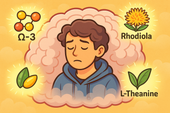
Brain Fog and Body Dysmorphic Disorder: Can Nootropic Supplements Help?
Brain fog often accompanies Body Dysmorphic Disorder, clouding focus and deepening emotional fatigue. Nootropic supplements like L-theanine, Rhodiola, and CoQ10 can help restore mental clarity, balance neurotransmitters, and bring calm energy back to the mind 🌿🧠.
-

How Stress Hormones Like Cortisol May Worsen Body Dysmorphic Disorder
Chronic stress floods the brain with cortisol — the hormone that keeps you on high alert. In Body Dysmorphic Disorder, this chemical overdrive fuels anxiety, distorts self-image, and traps the body in survival mode. Calming cortisol helps restore both peace and perspective 🌿🧠.
-

The Role of Neurotransmitters in BDD—and How Supplements May Help
Neurotransmitters like serotonin, dopamine, glutamate, and GABA shape how people with Body Dysmorphic Disorder perceive themselves. When these brain messengers fall out of balance, perception distorts — but targeted supplements can help restore calm, focus, and emotional regulation 🧠🌿.
-

What Is Body Dysmorphic Disorder? A Deeper Look at the Mind-Body Connection
Body Dysmorphic Disorder (BDD) isn’t just about appearance — it’s about perception. When brain chemistry, trauma, and stress distort self-image, the mind begins to see flaws that aren’t truly there. Healing starts by calming the nervous system and reconnecting mind and body 🪞🧠.
-

Keeping Calm in Competitive Sports: How to Train Your Mind, Body, and Chemistry for Peak Performance
Competitive pressure can overwhelm even the strongest athletes — but calm is trainable. By combining supplements like magnesium, L-theanine, and adaptogens with breathwork and mindset training, you can stay focused, balanced, and in control under any level of stress 🧠🏅.
-

Supplements for Parents Facing Toddler Tantrums: Staying Calm When Little Emotions Run Wild
Toddler tantrums can drain even the most loving parent — but your calm is powerful. With the right supplements like magnesium, L-theanine, and ashwagandha supporting your nervous system, you can stay patient, grounded, and kind, even when emotions run high 🧸🌿.
-

Workplace Stress and Anger Management Support
Workplace stress can quickly turn into frustration — but calm is a skill you can train. By combining supplements like magnesium, L-theanine, and adaptogens with breathwork and mindset tools, you can stay focused, patient, and emotionally grounded no matter how intense the office gets 💼🌿.
-

How to Stay Patient With Family During Stressful Holidays
Holiday gatherings can stir up old stress and test your patience — but calm is possible. With nervous system support from magnesium, L-theanine, and adaptogens, plus mindful breathing and clear boundaries, you can stay centered, kind, and grounded even when family chaos unfolds 🎄💞.
-

Supplements to Keep Calm During Traffic Jams
Getting stuck in traffic doesn’t have to ruin your mood. With calming supplements like magnesium, L-theanine, and ashwagandha, you can train your body to stay relaxed and focused behind the wheel — turning gridlock into a moment of grounded patience 🚗🌿.
-
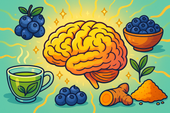
The Role of Antioxidants in Healing Brain Stress from Dissociation
Antioxidants protect the brain from the oxidative stress caused by trauma and dissociation. By neutralizing free radicals and supporting mitochondrial recovery, they help restore clarity, focus, and emotional balance — allowing the mind to heal at the cellular level 🌿🧠.
-

How Ginseng May Improve Focus and Energy in Dissociation
Ginseng helps combat the mental fatigue and fog that often come with dissociation. By supporting mitochondrial energy, balancing neurotransmitters, and regulating cortisol, it gently restores focus, motivation, and emotional presence — helping the mind reconnect with clarity and strength 🌿⚡.
-
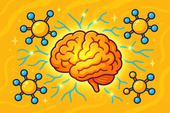
Phosphatidylserine and Dissociation: Supporting Cognitive Function
Phosphatidylserine helps calm the stress response by balancing cortisol, the body’s primary stress hormone. By lowering cortisol spikes, it protects memory, focus, and emotional stability — restoring clarity and mental presence for those struggling with dissociation 🧠🌿.
-
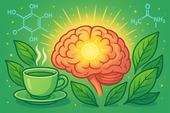
Can Green Tea Extract Help with Dissociative Brain Fog?
Green tea extract may help lift dissociative brain fog by supporting neurotransmitter balance, reducing inflammation, and enhancing energy at the cellular level. With its key compounds EGCG and L-theanine, it promotes calm focus, clarity, and emotional presence — helping you feel more alert and grounded 🍵🧠.
-
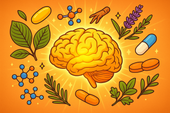
Building a Natural Supplement Stack for Dissociation Support
Building a supplement stack for dissociation means nourishing the brain and body back into communication. By supporting neurotransmitters, gut health, and energy balance through nutrients like magnesium, omega-3s, curcumin, and probiotics, you can help restore clarity, calm, and connection — one layer at a time 🌿🧠.
-

Chamomile and Lavender for Dissociative Anxiety Relief
Chamomile and lavender work together to calm dissociative anxiety by soothing the nervous system and restoring emotional safety. Their natural compounds balance cortisol, enhance GABA activity, and activate the vagus nerve — helping you feel grounded, connected, and at peace again 🌿💜.
-
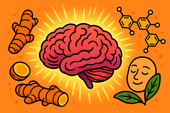
Curcumin for Inflammation and Mental Clarity in Dissociation
Curcumin, the golden compound in turmeric, does more than fight inflammation — it helps clear the mental fog often tied to dissociation. By calming neuroinflammation, balancing neurotransmitters, and supporting mitochondrial energy, curcumin can restore mental clarity, focus, and emotional presence 🌿🧠.
-
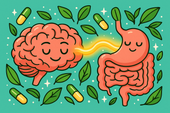
Probiotics and Dissociation: Exploring the Gut–Brain Axis
The gut–brain axis plays a vital role in emotional awareness and presence. When the microbiome is balanced, it supports serotonin production, vagus nerve activity, and calm focus. Probiotics help repair this connection — restoring safety, clarity, and the feeling of truly being in your body again 🌿🧠.
-
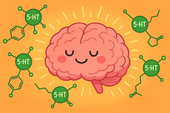
5-HTP for Dissociation: Supporting Serotonin and Emotional Stability
5-HTP helps bridge the gap between emotional numbness and stability by supporting serotonin production — the neurotransmitter that shapes mood, sleep, and sensory awareness. For people experiencing dissociation, 5-HTP may gently restore connection, presence, and emotional balance from the inside out 🌿🧠.

















































